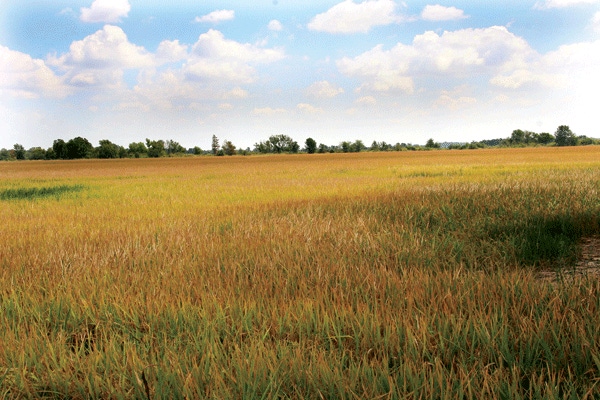
Two new rice varieties from Mississippi’s breeding program will offer additional choices for growers, says Tim Walker, associate research professor at the Delta Research and Extension Center, Stoneville, Miss.
“Our first Clearfield release, Clearfield 162, will be available both as registered seed and certified seed in 2011, so producers will get to grow some of that seed this year.
“Rex, a conventional long grain variety, is primarily at the registered seed level, so it will be 2012 before growers can get a really good feel for it.
“But, we’re really excited about the potential for these new varieties,” Walker said at the annual meeting of the Mississippi Rice Council at Cleveland, Miss.
The release process for Clearfield 162 was fast-tracked and was “the quickest release we’ve ever had,” he noted, due in part to seed increase at a winter nursery in Puerto Rico.
 “Maturity for this variety is similar to Cocodrie and Clearfield 151,” he says. “In trials, it has averaged 203 bushels per acre, with 60/71 milling. It is about 43 inches tall, has good straw strength, and we’ve not seen lodging.
“Maturity for this variety is similar to Cocodrie and Clearfield 151,” he says. “In trials, it has averaged 203 bushels per acre, with 60/71 milling. It is about 43 inches tall, has good straw strength, and we’ve not seen lodging.
“While Clearfield 151 has set the bar for yield in the Clearfield line, Clearfield 162 is within 10 percent of Clearfield 151 on average, with improved production qualities. We believe it is going to be a very competitive variety, and we’re looking forward to seeing it in production this year.”
While it is susceptible to blast, sheath blight, and straighthead, he says its field performance for straighthead would be between Cocodrie and Cheniere.
Rex, named for Rex Kimbrell, a pioneer in introducing rice to the Mississippi Delta in 1948, has been in tests for four years, Walker says, and “we’re really excited about how it has performed.”
Similar in maturity to Cocodrie and Clearfield 151, yields have averaged 214 bushels per acre, with 59/69 milling. It is about 41 inches tall and has excellent straw strength. It is susceptible to blast and sheath blight and moderately susceptible to straighthead.
Offers yield stability
“The thing I like about this variety is its stability. Over the four years of testing, with extremely different growing conditions, the yield range was very tight — with a high of 219 bushels and a low of 211 bushels. Other varieties had a much broader range of highs and lows.
“We believe Rex will be very competitive with Arkansas and Louisiana varieties. In regional nursery trials over three years, it was in the top 15 percent to 20 percent at all locations in Texas, Mississippi, Louisiana, and Missouri.
“For growers considering going back to a conventional variety, Rex should offer an excellent option.”
Walker says Mississippi’s breeding program will continue to include an emphasis on conventional varieties.
“Even with Clearfield, we still need good conventional varieties for parent lines. Year to year, 50 percent to 60 percent of our progeny lines are conventional varieties.”
With urea now in the neighborhood of $500 per ton, Walker says growers should consider using Agrotain nitrogen stabilizer to limit volatilization.
“There are a number of products out there, but this is the only one commercially available that inhibits nitrogen loss. We’ve tested the mechanism for this product, and we know it works.
“In addition to the cost of urea, there is a cost of reduced yield as a result of nitrogen that is lost through volatilization.”
About the Author(s)
You May Also Like




